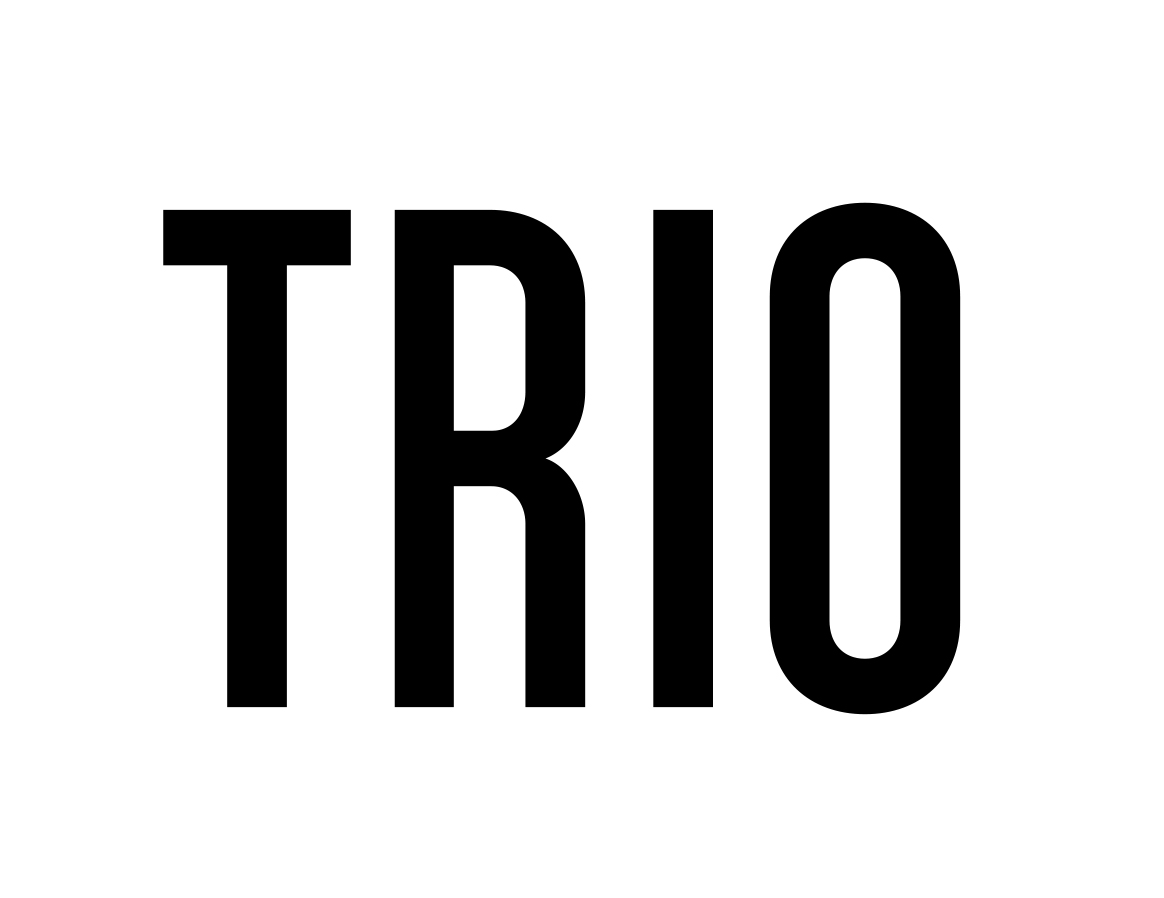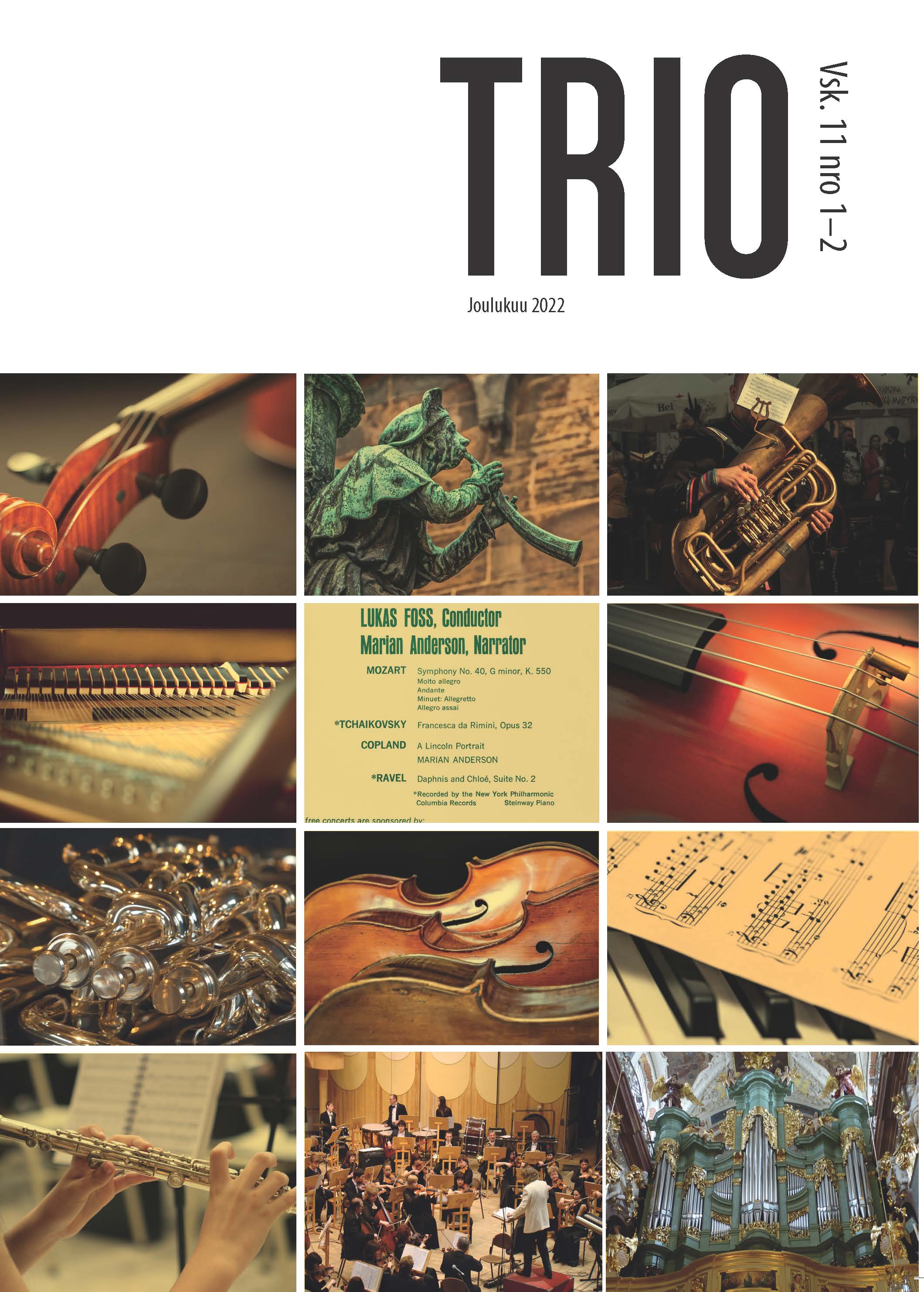Composers’ Reflections on the Relevance of Artistic Doctoral Education in Finland
From Self-Development towards Knowledge Exchange and Knowledge Creation
DOI:
https://doi.org/10.37453/tj.120925Avainsanat:
artistic research, composers, artistic doctoral education, knowledge creation, professional practice, self developmentAbstrakti
As Artistic Research (AR) is gaining momentum in academia and the movement has begun to affect the industry, in this qualitative study we ask how contemporary art music composers in Finland think of artistic doctoral education in the field of composition. Ten bigenerational composers participated in open interviews in which they were asked to reflect on AR both as a discipline and as a pathway in doctoral studies in relation to composers’ professional practice. A qualitative thematic analysis based on the “dialogic engagement practice” approach revealed certain benefits and challenges related to a) doctoral studies in AR, and b) the dynamics between composition and AR. In particular, participants noted a division between doctoral candidates enrolled in AR doctoral programs for self-focused artistic introspection (single-loop-learning) and those who connect their studies with activist and societal issues that go beyond personal inquiry (double-loop learning). Furthermore, issues of whether AR in composing could be considered research, or not, were also articulated. Based on these key aspects, the authors offer a conceptual learning triangulation between research, education, and self-development that could inform AR doctoral education curricula.
Lähdeviitteet
Aguilar, A. 2018. Distributed Ownership in Music: Between Authorship and Performance. Social & Legal Studies, 27(6), 776–798. https://doi.org/10.1177/0964663917734300
Argyris, C. 1991. Teaching Smart People to Learn. Harvard Business Review, 69(3), 99–109.
Argyris, C., & Schön, D. 1974. Theory in Practice Increasing Professional Effectiveness. San Francisco: Jossey-Bass Publishers.
Braun, V., & Clarke, V. 2006. Qualitative research for education: An introduction to theories and methods (5th ed.). Boston, MA: Pearson.
Borgdorff, H. 2012. The Conflict of the Faculties. Perspectives on Artistic Research and Academia. Leiden: Leiden University Press. https://doi.org/10.26530/oapen_595042
Caride, C. G. 2021. Respecting the GDPR in Online Interviewed Focus Groups. Journal of Audiovisual Translation, 4(2), 42–61. https://doi.org/10.47476/jat.v4i2.2021.175
Chiantore, L. 2017. Undisciplining music: Artistic research and historiographic activism.
Online Journal for Artistic Research in Music (IMPAR), 1(2), 3–21.
Coessens, K., Crispin, D., & Douglas, A. 2010. The Artistic Turn: A Manifesto. Leuven: Leuven University Press.
Creswell, J. W. 2009. Research design: Qualitative, quantitative, and mixed methods approaches (3rd ed.). Newbury Park, CA: Sage Publications.
Croft, J. 2015. Composition is not research. Tempo 69(272), 6–11.
de Assis, P. 2018. Logic of Experimentation: Rethinking Music Performance through Artistic Research. Leuven: Leuven University Press. https://doi.org/10.11116/9789461662507
Doğantan-Dack, M. 2015. Artistic Research in Classical Music Performance: Truth and Politics. PARSE Journal, 1, 27–40.
Gale, T., & Molla, T. 2016. Deliberations on the deliberative professional. Thought-action provocations. In J. Lynch, J. Rowlands, T. Gale, & A. Skourdoumbis (eds.) Practice Theory and Education. Diffractive readings in professional practice. Abington: Routledge. 247–262.
Gaunt H., Duffy C., Coric A., González Delgado I. R., Messas L., Pryimenko O., & Sveidahl H. 2021a. Musicians as “Makers in Society”: A Conceptual Foundation for Contemporary Professional Higher Music Education. Frontiers in Psychology 12:713648
https://doi.org/10.3389/fpsyg.2021.713648
Gaunt, H., López-Íñiguez, G., & Creech, A. 2021b. Musical engagement in one-to-one contexts. In A. Creech, D. Hodges & S. Hallam (eds.) Routledge international handbook of music psychology in education and the community. Abington: Routledge. 335–350.
https://doi.org/10.4324/9780429295362-29
Gaunt, H., & Westerlund, H. 2021. Invitation. In H. Westerlund & H. Gaunt (eds.) Expanding professionalism in music, performing arts, and higher arts education–A changing game. Abington: Routledge, SEMPRE. xiii–xxxiii. https://doi.org/10.4324/9781003108337
Godin, B. 2006. The linear model of innovation: the historical construction of an analytical framework. Science, Technology, & Human Values, 31(6), 639–667.
https://doi.org/10.1177/0162243906291865
Guillaumier, C. 2016. Reflection as creative process: Perspectives, challenges and practice. Arts and Humanities in Higher Education, 15(3–4), 353–363.
https://doi.org/10.1177/1474022216647381
Johansson, K., & Georgii-Hemming, E. 2021. Processes of academization in higher music education: The case of Sweden. British Journal of Music Education, 38(2), 173–186.
https://doi.org/10.1017/S0265051720000339
Kanno, M. 2019. Musical Performance and Artistic Research. In P. de Assis and L. d’Errico (eds.) Artistic Research: Charting the Field in Expansion. London: Rowman & Littlefield. 202–211.
Kruse-Weber, S., & Sari, T. 2019. Learning to reflect: Enhancing instrumental music education
students’ practice through reflective journals. In Stefan Gies & Jon Helge Sætre (eds.) Becoming musicians. NMH publications. Oslo: Norwegian Academy of Music. 127–150.
López-Íñiguez, G., & Bennett, D. 2020. A lifespan perspective on multi-professional musicians:
Does music education prepare classical musicians for their careers? Music Education Research,
(1), 1–14. https://doi.org/10.1080/14613808.2019.1703925
López-Íñiguez, G., & McPherson, G. E. 2021. Regulation of emotions to optimize classical music
performance: A single-case quasi-experimental study of a cellist-researcher. Frontiers in Psychology, 12, 627601. https://doi.org/10.3389/fpsyg.2021.627601
López-Íñiguez, G., & McPherson, G. E. 2020. Applying self-regulated learning and self-determination theory to optimize the performance of a concert cellist. Frontiers in Psychology, 11, 385. https://doi.org/10.3389/fpsyg.2020.00385
Matthew, D. 2021. But is it research? Artists fight for official recognition. The Times Higher Education, 30/06/2021.
https://www.timeshighereducation.com/news/it-research-artists-fight-official-recognition
Organisation for Economic Co-operation and Development (OECD) (2021). Oslo Manual:
Guidelines for Collecting and Interpreting Innovation Data. Paris: OECD.
https://www.oecd.org/site/innovationstrategy/defininginnovation.htm
Paavola, S., & Hakkarainen, K. 2005. The Knowledge Creation Metaphor – An Emergent Epistemological Approach to Learning. Science & Education, 14, 535–557.
https://doi.org/10.1007/s11191-004-5157-0
Palonkorpi, R. and Alatalo, A., (eds.) 2022. University of the Arts Helsinki Research Assessment 2021–2022. Helsinki: Uniarts Helsinki. https://urn.fi/URN:ISBN:978-952-353-427-8
Peters, D. 2017. Six Propositions to Artistic Research. In Burke R. and Onsman, A. (eds.) Perspectives on Artistic Research in Music. Lanham, MD: Lexington Books. 19–26.
Ravitch, S. M., & Mittenfelner Carl, N. 2016. Qualitative Research: Bridging the Conceptual, Theoretical, and Methodological. Newbury Park, CA: Sage Publications.
Rosenberg, N. 1994. Exploring the Black Box: Technology and Economics. Cambridge: Cambridge University Press. https://doi.org/10.1017/cbo9780511582554
Schippers, H., Tomlinson V., & Draper P. 2017. Two Decades of Artistic Research: The Antipodal
Experience’. In J. Impett (ed.) Artistic Research in Music: Discipline and Resistance. Leiden: Leiden University Press. 163–171. https://doi.org/10.2307/j.ctt21c4s2g.10
Schön, D. A. 1983. The Reflective Practitioner: How Professionals Think in Action. New York: Basic Books.
Sennett, R. 2008. The Craftsman. New York: Penguin Books.
Stephens, J. 2013. Artistic Knowledge in Practice. Professional Knowledge in Music Teacher Education. 73–96.
Tether, B., Mina, A., Consoli, D., & Gagliardi, D. 2005. A literature review on skills and innovation. How does successful innovation impact on the demand for skills and how do skills drive innovation? A CRIC Report for the Department of Trade and Industry, ESRC Centre on Innovation and Competition, University of Manchester, UK.
Toner, P. 2010. Innovation and Vocational Education. The Economic and Labour Relations Review, 21(2), 75–98.
United Kingdom Research Institute, 2019. REF2021: Guidance on submissions.
https://www.ref.ac.uk/publications-and-reports/guidance-on-submissions-201901/
University of the Arts Helsinki. Doctoral Programs in Music.
https://www.uniarts.fi/en/study-programmes/doctoral-programme-in-music/
Vear, C. (ed.) 2021. The Routledge International Handbook of Practice-Based Research, 1st ed. Abington: Routledge.
Westerlund, H. 2006. Garage Rock Band – A Future Model for Developing Musical Expertise? International Journal of Music Education, 24(2), 119–125.
https://doi.org/10.1177/0255761406065472
Westerlund, H. 2020. Stories and narratives as agencies of change in music education: Narrative mania or a resource for developing transformative music education professionalism? Bulletin of the Council for Research in Music Education, 223, 7–25.
https://doi.org/10.5406/bulcouresmusedu.223.0007
Westerlund, H., & Gaunt, H. (eds.) 2021. Expanding Professionalism in Music and Higher Music Education–A Changing Game. Abington: Routledge, SEMPRE. Open access.
https://doi.org/10.4324/9781003108337
Westerlund, H., & López-Íñiguez, G. 2022. Professional education towards protean careers in music: Bigenerational Finnish composers’ pathways and livelihoods in a changing professional ecosystem. Advanced Online Publication. Research Studies in Music Education.
https://doi.org/10.1177/1321103X2211314
Williamon, A. 2004. Musical Excellence: Strategies and Techniques to Enhance Performance. Oxford: Oxford University Press.
Tiedostolataukset
Julkaistu
Numero
Osasto
Lisenssi
Copyright (c) 2022 Mieko Kanno, Guadalupe López-Íñiguez, Heidi Westerlund

Tämä työ on lisensoitu Creative Commons Nimeä-EiKaupallinen 4.0 Kansainvälinen Julkinen -lisenssillä.





